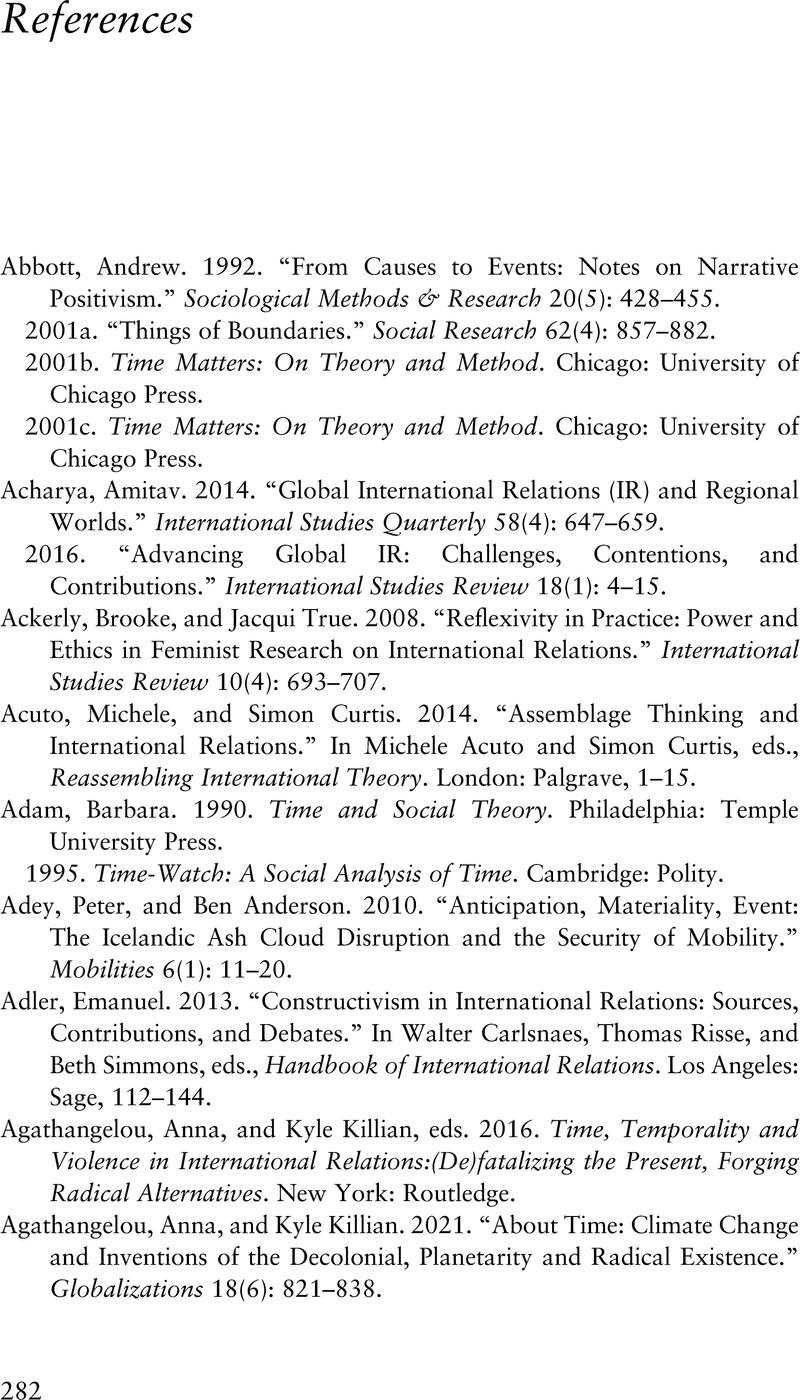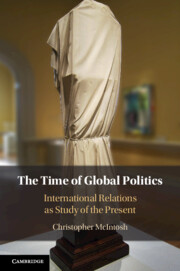Book contents
- The Time of Global Politics
- The Time of Global Politics
- Copyright page
- Contents
- Acknowledgments
- 1 Theorizing with the Present
- 2 The Temporal Imaginary of International Relations
- 3 A Presentist Approach to International Relations
- 4 The Temporality of IR Theories
- 5 The Time of War
- 6 Making America Great Again, Again, and Again
- 7 Beyond Disciplinary Prediction
- 8 Theorizing Responsibly
- Conclusion
- References
- Index
- References
References
Published online by Cambridge University Press: 23 November 2023
- The Time of Global Politics
- The Time of Global Politics
- Copyright page
- Contents
- Acknowledgments
- 1 Theorizing with the Present
- 2 The Temporal Imaginary of International Relations
- 3 A Presentist Approach to International Relations
- 4 The Temporality of IR Theories
- 5 The Time of War
- 6 Making America Great Again, Again, and Again
- 7 Beyond Disciplinary Prediction
- 8 Theorizing Responsibly
- Conclusion
- References
- Index
- References
Summary

- Type
- Chapter
- Information
- The Time of Global PoliticsInternational Relations as Study of the Present, pp. 282 - 328Publisher: Cambridge University PressPrint publication year: 2023

